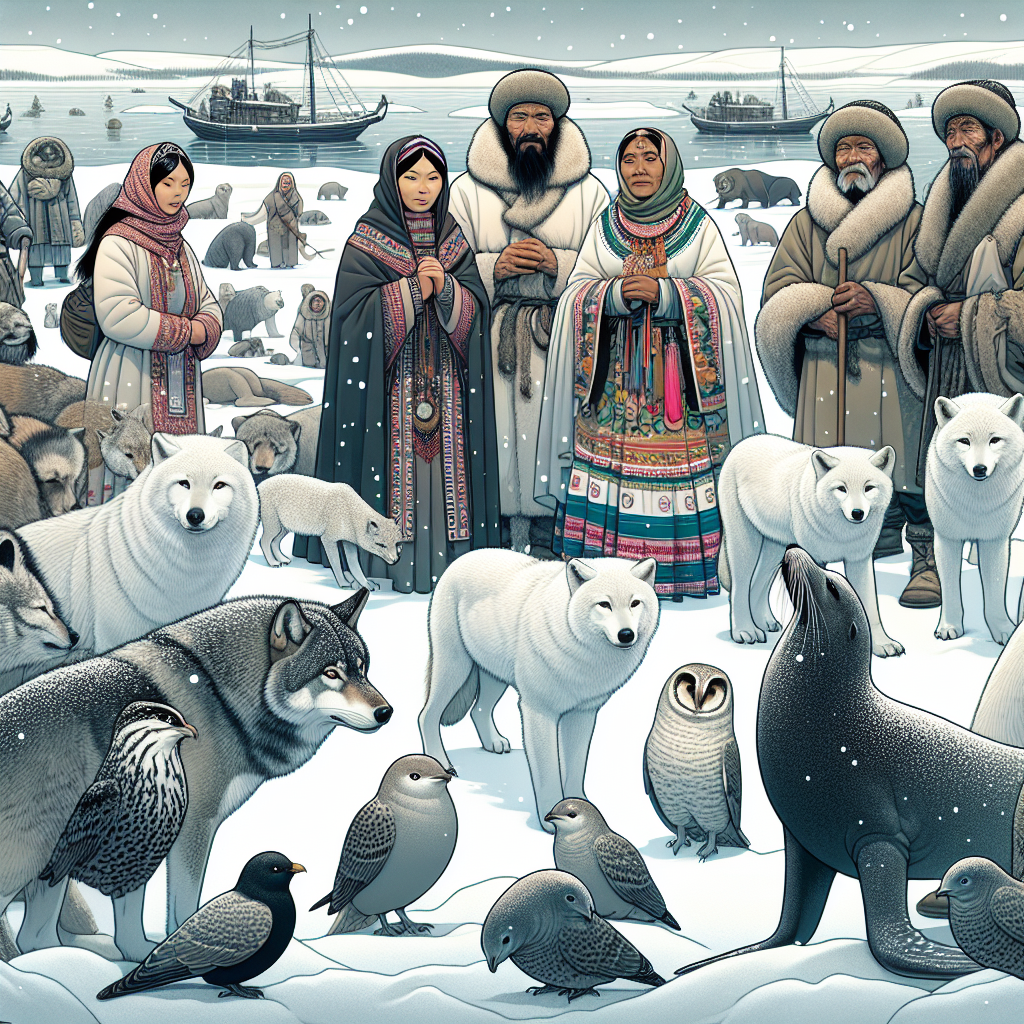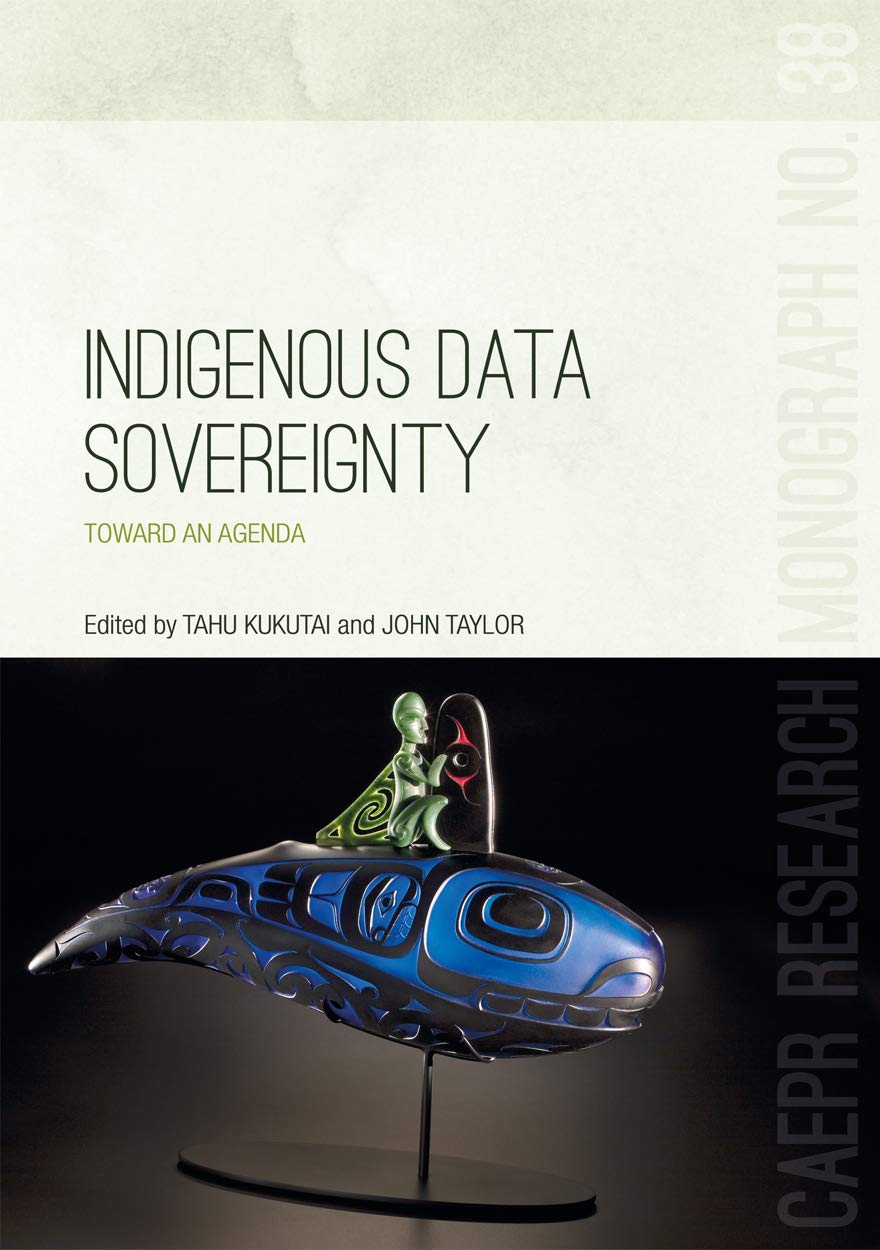Your cart is currently empty!
Tag: Indigenous
Will Biden Grant Leonard Peltier Clemency? Indigenous Leaders Plead, “Don’t Let Him Die in Prison”
This is a rush transcript. Copy may not be in its final form.
AMY GOODMAN: This is Democracy Now!, democracynow.org, The War and Peace Report. I’m Amy Goodman.
There are just days left in President Biden’s term. He has made history today, granting thousands of commutations, clemency overall, pardons in his last weeks. The question is: Will he grant clemency to Leonard Peltier? Over 120 tribal leaders are calling on Biden to grant the Indigenous leader Leonard Peltier clemency as one of his final acts in office. In a letter to Biden, the tribal leaders write, quote, “Our standing in the world as a champion of freedom, justice, and human rights cannot be maintained in a system that allows Leonard Peltier to die in prison.”
Leonard Peltier recently turned 80 years old. He spent the majority of his life, nearly half a century, in prison. For decades, he and his supporters have maintained Peltier’s innocence over the 1975 killing of two FBI agents in a shootout on the Pine Ridge Reservation in South Dakota and say his conviction was riddled with irregularities and prosecutorial misconduct. The federal government has been repeatedly accused of failing to prove its case against Peltier.
The former U.S. Attorney James Reynolds, who was a federal prosecutor for the District of South Dakota and was involved in Peltier’s prosecution, wrote to Biden in 2021 advocating for Peltier’s release. This is Reynolds reading a portion of that letter in a recent video produced by Preston Randolph.
JAMES REYNOLDS: President Joe Biden, I write today from a position rare for a former prosecutor, to beseech you to commute the sentence of a man who I helped to put behind bars. Leonard Peltier’s conviction and continued incarceration is a testament in a time and system of justice that no longer has a place in our society. We were not able to prove that Mr. Peltier personally committed any offense on the reservation. As a result to Mr. Peltier’s conviction, now arrest, is that he was guilty of a murder simply because he was present on the reservation that day. He has served time for more than 46 years on the hands of minimal evidence, a result I strongly doubt would be upheld in any court today. I believe that a grant of executive clemency would serve the best interest of justice and the best interest of our country.
AMY GOODMAN: For more, we go to Rapid City, South Dakota, where we’re joined by Nick Tilsen, founder and CEO of NDN Collective. Tilsen is among the more than 120 tribal leaders who issued a letter to Biden earlier this month as they continue to plead for Peltier’s freedom, who’s imprisoned in Florida right now.
Nick Tilsen, we only have a few minutes. Have you met with the pardon board?
NICK TILSEN: We actually met with the pardon attorney, Liz Oyer. We met with the pardon attorney at the Department of Justice headquarters in December with tribal leaders from around the country and talked specifically about Leonard Peltier and what this would mean for Indian Country. And she was the one who was actually drafting the recommendation, because there will be a recommendation that goes from the Department of Justice to the president’s desk. And now that recommendation has been made and is sitting on the desk of the president right now. And he will make a decision in — you know, today or tomorrow, in the coming days, whether he’s going to grant clemency to Leonard Peltier. And we don’t know — we don’t know exactly what the recommendation is, but when we left that meeting, all of the tribal leaders, we felt like — we felt like she was going to bring justice to Leonard Peltier, and we felt like it was going to be a recommendation for his release. And then the decision lies on — the decision lies on the president.
AMY GOODMAN: So, what did the pardon attorney tell you?
NICK TILSEN: The pardon attorney told us that they knew the case inside and out, that they — that one of the primary focuses of this particular meeting that we were sitting in is that the section of the recommendation that she wanted to work on was what this would mean for Indian Country, what this would mean for Indian Country if Leonard Peltier was released. And we talked in depth, that the president of United States issued an apology for the boarding schools, and that it so happens to be that America’s longest-incarcerated Indigenous political prisoner in history is, in fact, a boarding school survivor, and that we need to see action from the president, and that this is also an issue that will help illuminate many of the other good things that the Biden administration has done for Indian people. And so, they confirmed — she confirmed that, in fact, there was for sure going to be a written recommendation, and it was going to for sure go on to the president of the United States, and he was going to make a decision before he leaves office.
AMY GOODMAN: What is Leonard Peltier’s condition in the Florida prison?
NICK TILSEN: Leonard is 80% blind in one eye. He has type 2 diabetes. He’s in a walker. He has an aortic aneurysm. His health is deteriorating. And that facility, quite frankly, doesn’t even have the capability to meet his medical needs. And so, it’s absolutely a dire situation. And we need to get Leonard out of that prison, back home and able to see a doctor almost immediately upon his release.
AMY GOODMAN: Can you tell me if the first-ever U.S. cabinet — Native American cabinet member, Deb Haaland, the former congressmember from New Mexico, has weighed in?
NICK TILSEN: She has weighed in directly to the president. On Air Force One from Washington, D.C., to Arizona, when the announcement was going to be made for the apology for the boarding schools, she weighed in then. She’s weighed in several times. And at this point in time, the president of the United States needs to listen to this matriarch and needs to listen to Secretary Deb Haaland, and because this is a priority for Indian Country. And this is a perfect opportunity for the president of the United States to listen to the honorable Secretary Haaland. And she has weighed in. She has not weighed in publicly, but she has weighed in directly to the president as the secretary of the Department of Interior.
AMY GOODMAN: I wanted to play a clip from — oh, it was over 10 years ago, when I talked to Leonard Peltier in prison on the phone at the time. It was President Obama who was in office.
AMY GOODMAN: Leonard, this is Amy Goodman from Democracy Now! I was —
LEONARD PELTIER: Oh, hi, Amy. How are you?
AMY GOODMAN: Hi. I’m good. I was wondering if you have a message for President Obama?
LEONARD PELTIER: I just hope he can, you know, stop the wars that are going on in this world, and stop getting — killing all those people getting killed, and, you know, give the Black Hills back to my people, and turn me loose.
AMY GOODMAN: It was very interesting, Nick Tilsen, as we break away from that interview — people can hear the whole interview at democracynow.org — that when I asked him to comment, he didn’t comment first on his own case. He talked about stopping the wars. If you can, in this last 30 seconds that we have, talk about what it would mean for Native America, for Indian Country, for this country overall, for Leonard Peltier to be granted clemency?
NICK TILSEN: You know, all throughout, the history of the treatment of Indian people by the United States government has been one of injustice. And the reality is, how Leonard Peltier was treated in his prosecution and incarceration is consistent with how this country has treated Indian people. And that’s why all of us see a little bit of ourselves in Leonard Peltier, and that’s why we fight so hard for him. So this is about Leonard’s freedom, but this is about justice for Indian people everywhere. This is about human rights for people everywhere. This is about paving a path forward that gives us the opportunity to have justice and begin to heal the relationship between the United States government and Indian people. And so, this decision is massive. And I really hope that the president of United States weighs this decision. If he releases Leonard Peltier, he will be forever known the president who did that. And American —
AMY GOODMAN: Native American activist Nick Tilsen, we’re going to leave it there, founder and CEO of NDN Collective. Thank you so much. That does it for our show. Democracy Now! produced with Renée Feltz, Anjali Kamat, Mike Burke. I’m Amy Goodman.
As the Biden administration settles into office, the question on many minds is whether President Biden will grant clemency to Leonard Peltier, a Native American activist who has been serving a life sentence for the past 45 years. Peltier, a member of the American Indian Movement, was convicted of the murders of two FBI agents during a shootout on the Pine Ridge Indian Reservation in 1975.Since his conviction, Peltier has maintained his innocence and been a symbol of Native American resistance and perseverance. Indigenous leaders across the country have been calling on President Biden to grant clemency to Peltier, arguing that he is a political prisoner who has been unjustly incarcerated for decades.
As Peltier’s health deteriorates in prison, supporters fear that he may die behind bars if action is not taken soon. In a recent letter to President Biden, leaders of the National Congress of American Indians urged him to “correct this historic wrong and grant clemency to Mr. Peltier before it is too late.”
The case of Leonard Peltier has long been a point of contention and controversy, with many believing that he did not receive a fair trial and that his continued imprisonment is a grave injustice. As calls for clemency grow louder, the ball is now in President Biden’s court. Will he heed the pleas of Indigenous leaders and grant Leonard Peltier the freedom he has been fighting for? Only time will tell.
Tags:
Biden administration, Leonard Peltier, clemency, Indigenous leaders, prison, plea for justice, Native American rights, political activism, human rights, presidential pardon
#Biden #Grant #Leonard #Peltier #Clemency #Indigenous #Leaders #Plead #Dont #Die #Prison
The Cultural Significance of Arctic Grey Species to Indigenous Communities
The Arctic Grey species holds a special cultural significance to Indigenous communities living in the Arctic region. These majestic creatures play a vital role in the traditional way of life of these communities, providing food, clothing, and spiritual connections.For centuries, Indigenous peoples in the Arctic have relied on the Arctic Grey species for sustenance. The meat of the Arctic Grey is a valuable source of nutrition, providing essential vitamins and minerals that are necessary for survival in the harsh Arctic environment. The skin of the Arctic Grey is also used to make clothing, such as parkas and boots, that protect against the cold temperatures of the region.
In addition to their practical uses, Arctic Grey species also hold spiritual significance for Indigenous communities. Many Indigenous peoples believe that these creatures possess unique qualities and powers that are passed down through generations. The Arctic Grey is often seen as a symbol of strength, resilience, and adaptability, qualities that are highly valued in the Arctic environment.
Furthermore, the Arctic Grey species plays a significant role in the cultural practices and traditions of Indigenous communities. These creatures are often featured in traditional stories, songs, and dances that have been passed down through generations. The presence of the Arctic Grey in these cultural expressions serves to honor and celebrate the relationship between Indigenous peoples and the natural world.
Unfortunately, the Arctic Grey species is facing threats from climate change, hunting, and habitat destruction. As a result, Indigenous communities are working to protect and conserve these creatures for future generations. Many Indigenous organizations are advocating for sustainable hunting practices and conservation efforts to ensure the survival of the Arctic Grey species.
In conclusion, the Arctic Grey species holds a deep cultural significance to Indigenous communities living in the Arctic region. These creatures are not only essential for survival but also play a vital role in the spiritual and cultural practices of Indigenous peoples. It is crucial that we recognize and respect the importance of the Arctic Grey to these communities and work together to protect and conserve these magnificent creatures for generations to come.
#Cultural #Significance #Arctic #Grey #Species #Indigenous #Communities,arctic grey
Maya 2025: A Vision for the Future of Indigenous Communities
Maya 2025: A Vision for the Future of Indigenous CommunitiesThe Maya civilization is one of the most renowned ancient civilizations in the world, known for its advanced knowledge of mathematics, astronomy, and architecture. Today, the Maya people continue to thrive in the Yucatan Peninsula and parts of Central America, preserving their rich cultural heritage and traditions.
As we look towards the future, it is important to consider how indigenous communities, like the Maya, can continue to flourish in a rapidly changing world. Maya 2025 is a vision for the future of indigenous communities, focused on sustainability, cultural preservation, and empowerment.
One of the key aspects of Maya 2025 is environmental sustainability. The Maya have a deep connection to the land and have long practiced sustainable agriculture and stewardship of natural resources. In the face of climate change and environmental degradation, it is crucial for indigenous communities to continue these practices and adapt to new challenges. Maya 2025 envisions a future where the Maya people are at the forefront of sustainable development, utilizing traditional knowledge and practices to protect the environment for future generations.
Cultural preservation is another important aspect of Maya 2025. The Maya have a rich cultural heritage, with a unique language, traditions, and customs that have been passed down through generations. In the face of globalization and modernization, it is essential to preserve and promote Maya culture. Maya 2025 seeks to support initiatives that promote language revitalization, traditional arts and crafts, and cultural education, ensuring that the Maya identity remains strong and vibrant in the years to come.
Empowerment is also a key pillar of Maya 2025. Indigenous communities, including the Maya, have faced historical marginalization and discrimination. Maya 2025 aims to empower indigenous people through education, economic opportunities, and political representation. By strengthening indigenous leadership and promoting self-determination, Maya 2025 envisions a future where the Maya people have a voice in shaping their own destiny and are able to fully participate in society.
In conclusion, Maya 2025 is a vision for the future of indigenous communities that is rooted in sustainability, cultural preservation, and empowerment. By working together to support the Maya people and other indigenous communities, we can ensure a future where their rich heritage and traditions continue to thrive. Let us all join hands in building a future where indigenous communities are respected, empowered, and able to flourish for generations to come.

The Animal Elders Oracle: A 44-Card Deck & Guidebook of Indigenous Wisdom & Healing Medicine
Price: $19.99
(as of Nov 28,2024 10:07:59 UTC – Details)From the Publisher






Add to Cart
Add to Cart
Customer Reviews
4.8 out of 5 stars
338
4.9 out of 5 stars
214
Price
$14.76$14.76 $21.67$21.67
Also by Asha Frost
Publisher : Hay House LLC (December 3, 2024)
Language : English
Cards : 128 pages
ISBN-10 : 1401978185
ISBN-13 : 978-1401978181
Item Weight : 13.1 ounces
Dimensions : 3.88 x 1.31 x 5.38 inches
Introducing The Animal Elders Oracle: A 44-Card Deck & Guidebook of Indigenous Wisdom & Healing MedicineEmbark on a journey of deep connection and spiritual guidance with The Animal Elders Oracle, a powerful tool for accessing the wisdom and healing medicine of indigenous cultures. This beautifully illustrated 44-card deck features animal elders from various traditions, each offering their unique teachings and blessings.
Through the accompanying guidebook, you will learn how to work with the cards to receive insightful messages and guidance from the animal elders. Whether you are seeking clarity, healing, or spiritual growth, The Animal Elders Oracle will support you on your path and help you connect with the natural world and its profound wisdom.
With its rich symbolism and ancient teachings, this oracle deck is a valuable resource for anyone interested in indigenous wisdom, shamanic practices, and the healing power of nature. Embrace the wisdom of the animal elders and unlock the transformative potential of their teachings in your life.
Are you ready to embark on a journey of healing and spiritual growth with The Animal Elders Oracle? Order your deck today and start connecting with the wisdom of the animal elders.
#Animal #Elders #Oracle #44Card #Deck #Guidebook #Indigenous #Wisdom #Healing #Medicine
Indigenous Data Sovereignty: Toward an agenda (Centre for Aboriginal Economic Policy Research (CAEPR))
Price:$53.00– $28.41
(as of Nov 24,2024 09:10:04 UTC – Details)
Publisher : ANU Press (November 14, 2016)
Language : English
Paperback : 344 pages
ISBN-10 : 1760460303
ISBN-13 : 978-1760460303
Item Weight : 1.41 pounds
Dimensions : 6.02 x 0.78 x 9.21 inches
Indigenous Data Sovereignty: Toward an agenda (Centre for Aboriginal Economic Policy Research (CAEPR))In today’s digital age, data has become a valuable asset that holds immense power and potential. However, for Indigenous communities, the issue of data sovereignty is a critical one that requires careful consideration and action.
The Centre for Aboriginal Economic Policy Research (CAEPR) has recognized the importance of Indigenous data sovereignty and is working towards developing a comprehensive agenda to address this issue. Indigenous data sovereignty refers to the right of Indigenous peoples to have control over their own data, including how it is collected, used, and shared.
By prioritizing Indigenous data sovereignty, CAEPR aims to empower Indigenous communities to harness the power of data for their own benefit. This includes ensuring that Indigenous data is collected and used in a culturally appropriate and respectful manner, as well as advocating for policies that protect Indigenous data rights.
Through research, advocacy, and collaboration with Indigenous communities, CAEPR is committed to advancing the agenda of Indigenous data sovereignty. By recognizing the unique needs and perspectives of Indigenous peoples, we can work towards a future where data is used as a tool for empowerment and self-determination.
Join us in our mission to support Indigenous data sovereignty and help create a more equitable and just future for Indigenous communities.
#Indigenous #Data #Sovereignty #agenda #Centre #Aboriginal #Economic #Policy #Research #CAEPR
